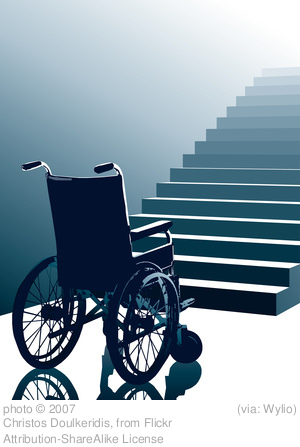I remember boarding the District tube line in London, England. The whole place smelled of diesel and urine, but every once in a while you’d get this blast of hot air carrying the scent of baking bread.
That’s London for you.
I settled in for what was normally a quiet ride, standing in the middle aisle, my hand holding on to the rail above, my body swaying with each turn like a scarecrow in a fall breeze.
Then he boarded the train. His head was shaved, his clothes were disheveled and his eyes, they were fire. He carried a megaphone attached to a small speaker (presumably for outdoor use). He was quiet, until the tube train started moving through the dark recesses of underground tracks.
It was as if he woke up.
“Do you know God, brother?” he screamed, six inches from the face of an older man. The man didn’t say anything, just stared right past him, so the guy with fire in his eyes moved to the next person.
“Do you know Jesus?” he challenged, this time directing his vengeance at a girl in her early twenties.
“Yes,” she replied, her lips terse, her skin pale. “I’m a Christian.”
He squinted, as if examining her soul. Then he laughed a mean laugh.
“You’re no Christian. If you were, you’d be doing this,” he said, brandishing his megaphone before moving down the row.
* * * * *
Whenever I explore different ways to communicate the concept of sin, I often hear the same comments.
“You’re not taking sin seriously enough,” they usually say. “You’re watering down the Gospel.” I grew up in a charismatic Evangelical church, so I understand the sentiment.
“You have to warn people,” some folks have commented. “You have to tell them that the wages of sin is death.”
* * * * *
Imagine coming to the horrible realization that the highway overpass you are on ends in midair. You pull your car over to the shoulder and wait, hoping to warn any oncoming drivers of the predicament ahead.
The first car approaches, and you manage to wave them to a stop. They roll down their window.
“You’ve got to stop. The road is in disrepair. Keep going, and you’re dead.”
The person looks at you, clueless. See, the thing is, you’re in a foreign country and they don’t speak your language. They shrug their shoulders, start to pull away. You don’t know what else to do, so you grab the driver in a choke hold and start beating him upside the head, grabbing for his keys. But he drives off, angry and terrified.
The next car approaches. Now that you know they don’t speak your language, you skip straight to the beating part, hoping to bludgeon them unconscious before they, too, plummet to their death. Once again, scared and angry, they drive off.
* * * * *
When will we realize that we have to learn a new language?

